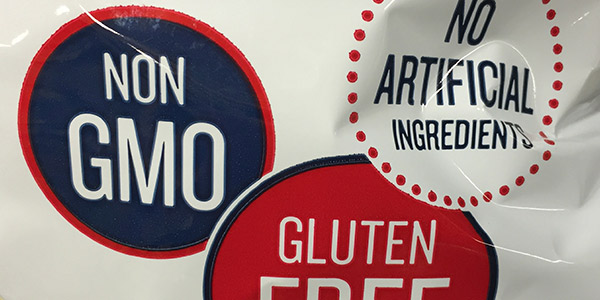When DARK (Denying Americans the Right to Know) failed to pass the U.S. Senate in March 2016, it appeared a corner had been turned. The defeat was overwhelmingly considered a victory in the fight for greater food system transparency. And in growing numbers, customer-centric food corporations like Campbell’s Soup, Kraft and General Mills began committing to GMO labeling.
In our post covering the news, we mentioned that we’d be keeping tabs on this issue. The latest development—just days before the July 1 deadline for Vermont’s new labeling law—is a compromise bill that food movement proponents are calling a “backroom deal.”
The Center for Food Safety reports that Senator Pat Roberts (R-KS) and Debbie Stabenow (D-MI) offered a “discriminatory and deeply flawed” labeling bill to the Senate. According to its press release, “…the bill has come forward without a hearing or testimony and was the result of non-transparent dealings between the two Senators, the Grocery Manufacturers Association and other industry groups.”
Andrew Kimbrell, executive director of the Center for Food Safety, goes on to state the following: “This legislation isn’t a labeling bill; it’s a non-labeling bill. The bill would mean that more than a third of all Americans would be left in the dark about the food they buy, and virtually all current and future GMO foods could be exempted under the bill. It also tramples on the Democracy of states all around the country.”
Aspects of the new compromise bill are familiar. Set a national policy. Preempt seed labeling laws along with more than 100 state and municipal laws regulating GMOs. Give manufacturers the options of using a QSR code, a symbol, or providing a toll-free phone number to call for information instead of an on-package label.
Remember the statistic floating around before the vote on DARK—that on-package labeling compliance would be so costly for manufacturers it would translate to an annual food cost increase of about $500 per family, per year? It was still in play until a spokesman for Campbell’s publicly stated that the cost of labeling is negligible and no costs will be passed on to consumers. That shutdown is one of the bright spots in this saga.
Another encouraging development is that a coalition of consumer, food safety, farm, environmental and religious groups, along with several food corporations, sent a joint letter to all members of the Senate. It states that the poorly drafted bill “exempts major portions of current and future GMO foods from labeling; is on its face discriminatory against low-income, rural, minority and elderly populations; is a gross violation of the sovereignty of numerous states; and provides no enforcement against those who violate the law.”
Its impact will remain to be seen. Stay tuned.

